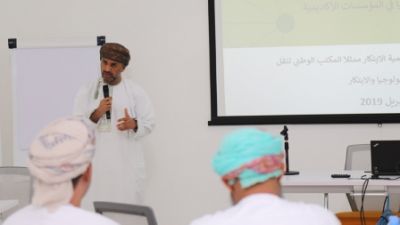
Times of Oman
Muscat: A workshop on ‘Mechanisms for the Establishment of Technology Transfer Offices (TTOs) in academic and research institutions’ was organised by The Research Council (TRC) on Monday at the Institute of Oil and Gas (instOG).
The workshop shed light on the mechanisms used for the establishment of technology transfer offices, challenges and solutions. It focused on technology transfer operations, in terms of relevance and operational model in research institutions, especially universities. It discussed the TTOs strategies and their multiple stages, starting from the disclosure and evaluation stage to the technology marketing and commercialisation stage.
Functions of TTOs and the infrastructure required for establishing them were also presented. The workshop also stressed on the importance of confidentiality when dealing with disclosure requests, and explained the innovation disclosure form, and the terms and role of the liaison officer who will be the link with the National Technology Transfer Office (NTTO).
Shiekha Al Akhzamiya, from the Innovation and Technology Transfer Center at Sultan Qaboos University, shared the SQU’s experience with the workshop’s participants.
Addressing the participants with the opening remarks, His Highness Sayyid Dr Fahad bin Aljulanda Al Said, Assistant Secretary General for Innovation Development at The Research Council (TRC), said, “The current situation of technology transfer offices at all the academic institutions in the Sultanate is much better, compared to 5 to 7 years ago, because innovation and entrepreneurship culture has become an integral part of students’ mentalities.”
“The experience of the Sultan Qaboos University with regard to innovation support and the establishment of the technology transfer center is indeed a pioneering one,” HH Sayyid Dr Fahad added.
Dr Zahra Al Rawahiya, Director of Building Innovative Capabilities department at TRC, said, “Technology transfer offices at universities connect academia to the other institutions. They provide the necessary support for the protection of Intellectual Property (IP)of new technologies and help the outside community to find investors. This may require facilitation of the incubation process of start-ups that are based on research outcomes at universities.”